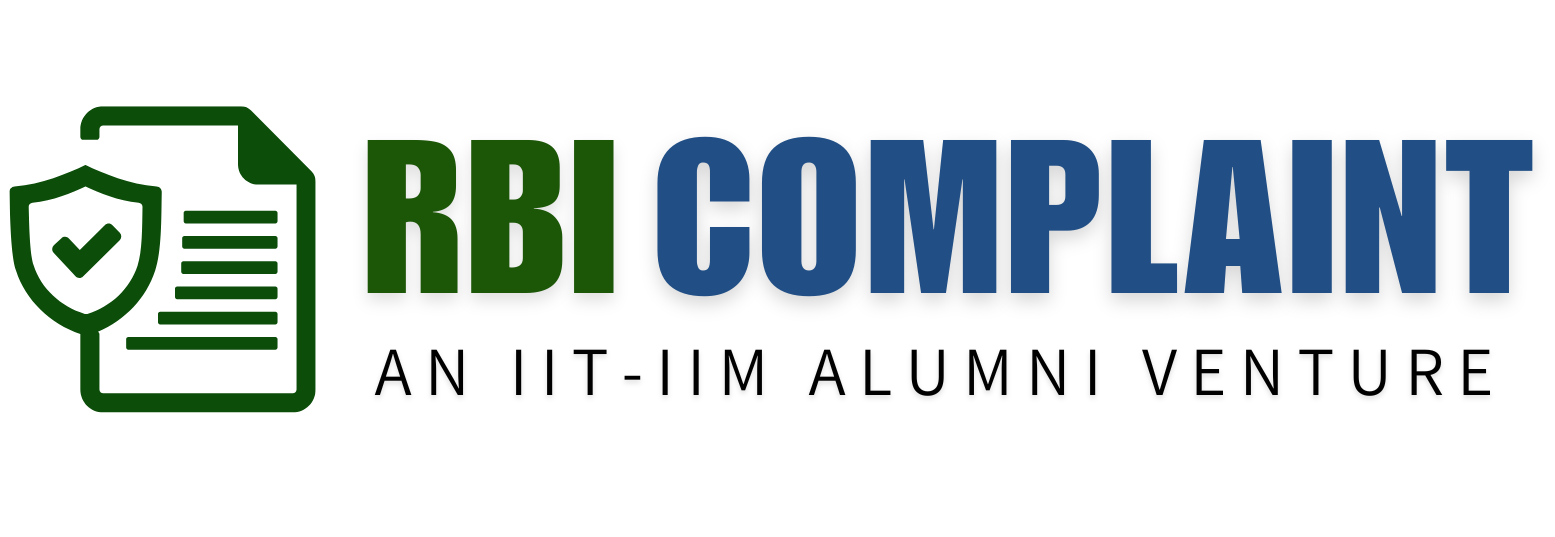· RBI Grievance Redressal · 5 min read
Success Stories: How RBI Complaints Helped Consumers
Explore success stories of consumers who resolved issues through RBI complaints. Learn how effective grievance redressal can make a difference.

In recent years, consumer protection has taken center stage in India’s financial sector, thanks to mechanisms like the Reserve Bank of India’s (RBI) complaint system. This formal process offers Indian consumers a crucial resource to resolve issues with banks and financial institutions, helping them recover funds, gain relief from unfair practices, and secure fair treatment. Here, we dive into real-life success stories that showcase how the RBI complaint mechanism has empowered consumers to regain control over their finances.
What is the RBI Complaint Mechanism?
The RBI complaint mechanism is a structured process that allows consumers to raise grievances regarding banking issues. It is a part of the RBI’s broader initiative to promote fairness, transparency, and consumer protection in the Indian banking system. Whether it’s unauthorized transactions or unfair loan charges, the RBI’s complaint system provides a clear avenue for redressal.
How the RBI Complaint System Works
Step-by-Step Process of Filing an RBI Complaint
Filing a complaint with the RBI is straightforward:
Initial Contact with Bank: The consumer must first raise the issue directly with their bank.
Wait for Bank Response: If the bank doesn’t resolve the issue within 30 days, the consumer can escalate it to the RBI.
Filing a Complaint: Complaints are filed online through the RBI’s Complaint Management System (CMS) .
Follow-up: The RBI assigns an ombudsman to review the complaint and facilitate resolution.
Eligibility for Filing a Complaint
Consumers can escalate complaints regarding both banks and non-banking financial companies (NBFCs) , provided they have first approached the bank or NBFC directly.
Types of Complaints Addressed
The RBI complaint mechanism covers various issues, including:
Unauthorized transactions
Unfair loan or service charges
Delays in grievance resolution
Fraudulent activities
Success Story 1: Recovering Money from a Fraudulent Transaction
A consumer discovered a debit transaction on their account that they did not authorize. Despite contacting their bank, they were unable to resolve the issue satisfactorily.
Complaint Process: After getting no response from the bank, the consumer filed a detailed complaint with the RBI, providing transaction records and other relevant documents.
Resolution and Outcome: The RBI Ombudsman investigated the matter, and within a month, the bank refunded the consumer. Additionally, the bank was instructed to strengthen its security processes.
Success Story 2: Relief from Unfair Loan Charges
In another case, a consumer noticed excessive charges on their loan account without prior notification. The bank failed to provide a satisfactory explanation, prompting the consumer to escalate the issue.
Steps Taken: The consumer filed a complaint with the RBI, attaching documentation, including their loan agreement.
Final Resolution: The RBI ordered the bank to refund the excess amount and issue a formal apology. This success offered relief from future unfair charges and demonstrated the effectiveness of the RBI’s complaint mechanism.
Success Story 3: Waiving Unreasonable Bank Charges
A consumer faced multiple service fees they found excessive and unjustified. Despite contacting the bank, the charges were not reversed.
Role of RBI Complaint: After filing a complaint with the RBI, the Ombudsman reviewed the case and concluded that the bank had indeed overcharged the consumer.
Consumer’s Experience: The bank was ordered to waive the charges, providing a swift resolution thanks to the RBI’s intervention.
Benefits of Filing an RBI Complaint
Filing a complaint with the RBI provides numerous advantages:
Holds banks accountable for their practices.
Ensures timely resolution of issues.
Encourages fair treatment and transparency in banking.
Strengthens consumer rights in the financial sector.
How to Strengthen Your Case When Filing a Complaint
To improve the likelihood of a successful resolution, consider the following:
Essential Documents to Include
Communication records with the bank.
Relevant account statements or loan documentation.
Detailed information on the grievance, including transaction details.
Common Mistakes to Avoid
Failing to contact the bank first.
Providing incomplete documentation.
Filing complaints outside the eligible timeframe.
How RBI Ensures Transparency and Fairness in Handling Complaints
The RBI complaint system is designed with transparency in mind. Consumers can track the status of their complaints in real-time, ensuring that every case is investigated fairly based on the presented facts.
Consumer Awareness: Know Your Rights
Many consumers are unaware of their rights, such as fair treatment, access to timely resolutions, and protection against unfair fees. Understanding these rights is crucial in navigating the banking system confidently.
Why Some Complaints Get Rejected and How to Avoid It
Some complaints may be rejected due to:
Insufficient evidence.
Not contacting the bank first.
Ineligibility of the complaint type.
To avoid rejection, ensure that you have all required documentation and follow the prescribed steps before filing a complaint.
Impact of RBI Complaint Resolution on the Banking Sector
The RBI’s complaint resolution system has improved transparency and accountability across the banking industry. As a result, banks are increasingly mindful of their practices and customer service standards to avoid escalations.
RBI’s Role in Consumer Protection
The RBI plays a critical role in protecting consumers by enforcing fair practices and strict guidelines. The success stories highlight the RBI’s commitment to ensuring that consumers have a reliable and effective recourse when facing banking issues.
Conclusion: The Power of RBI Complaints in Protecting Consumers
The RBI complaint mechanism has empowered countless consumers to take a stand against unfair practices in the banking sector. From recovering funds lost in fraudulent transactions to obtaining relief from unreasonable charges, the RBI’s complaint system provides justice to consumers, reinforcing confidence in the financial system.



